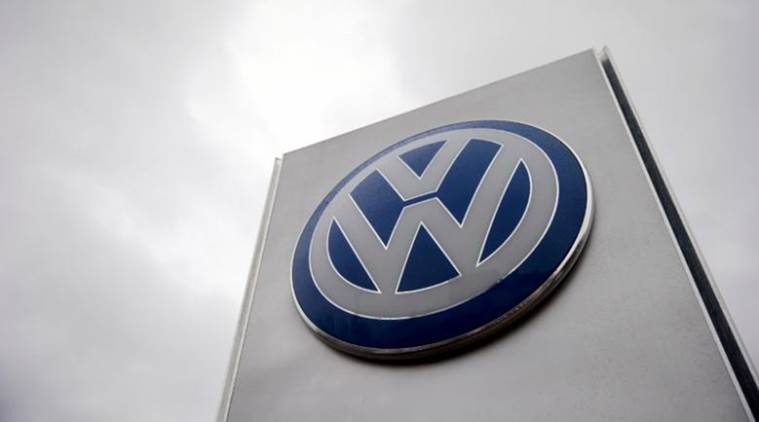Kaunain Sheriff M is an award-winning investigative journalist and the National Health Editor at The Indian Express. He is the author of Johnson & Johnson Files: The Indian Secrets of a Global Giant, an investigation into one of the world’s most powerful pharmaceutical companies. With over a decade of experience, Kaunain brings deep expertise in three areas of investigative journalism: law, health, and data. He currently leads The Indian Express newsroom’s in-depth coverage of health. His work has earned some of the most prestigious honours in journalism, including the Ramnath Goenka Award for Excellence in Journalism, the Society of Publishers in Asia (SOPA) Award, and the Mumbai Press Club’s Red Ink Award. Kaunain has also collaborated on major global investigations. He was part of the Implant Files project with the International Consortium of Investigative Journalists (ICIJ), which exposed malpractices in the medical device industry across the world. He also contributed to an international investigation that uncovered how a Chinese big-data firm was monitoring thousands of prominent Indian individuals and institutions in real time. Over the years, he has reported on several high-profile criminal trials, including the Hashimpura massacre, the 2G spectrum scam, and the coal block allocation case. Within The Indian Express, he has been honoured three times with the Indian Express Excellence Award for his investigations—on the anti-Sikh riots, the Vyapam exam scam, and the abuse of the National Security Act in Uttar Pradesh. ... Read More
Volkswagen scandal comes to India, NGT expert panel recommends Rs 171-crore fine as health cost
The NGT panel was formed in the wake of the 2015 global emission scandal or ‘Dieselgate’ when the company was found guilty of intentionally programming its diesel engines with cheat devices to meet US regulatory standards but actually emit up to 40 times more Nitrous Oxides (NOx) in real-world conditions.
 The proposed fine is the latest blow to the company, which is facing criminal and civil penalties for installing illegal software in diesel engines to cheat strict US pollution norms. (Reuters)
The proposed fine is the latest blow to the company, which is facing criminal and civil penalties for installing illegal software in diesel engines to cheat strict US pollution norms. (Reuters)
In the first official indictment against Volkswagen in the country, the four-member expert panel constituted by the National Green Tribunal (NGT) has recommended that the German global auto giant pay at least Rs 171.34 crore as a “conservative” fine for damage to health caused in India.
The NGT panel was formed in November last year in the wake of the 2015 global emission scandal or ‘Dieselgate’ when the company was found guilty of intentionally programming its diesel engines with cheat devices to meet US regulatory standards but actually emit up to 40 times more Nitrous Oxides (NOx) in real-world conditions.
The expert panel report accessed by The Indian Express, and filed on December 24, 2018, has estimated that Volkswagen cars released approximately 48.678 tonnes of NOx in 2016. The panel, which used Delhi as the base city to calculate the damages, has “estimated cost of health damage due to additional NOx from the Volkswagen group vehicles is approximately Rs 171.34 crore”.
The panel reiterated that “longer exposures to elevated concentrations of NO2 may contribute to the development of asthma and potentially increase susceptibility to respiratory infections”. NOx gases react to form smog and acid rain and are central to the formation of fine particles (PM) and ground-level ozone, both of which are associated with adverse health effects.
The panel calculated the morbidity by using the estimates of the cost of treatment and related expenses under the heading of cost of illness and the disability-adjusted life years (DALY) from the WHO database.
The penalty was determined on the basis of the 3.27 lakh Volkswagen cars that had deceit software installed in India. The report was filed on orders passed by NGT chairperson Justice Adarsh Kumar Goel – which on November 16, 2018 – had directed Volkswagen to deposit Rs 100 crore within one month with the Central Pollution Control Board (CPCB).
In the same order, the NGT had constituted a joint team comprising representatives of the CPCB, the Ministry of Heavy Industries, the Automotive Research Association of India (ARAI) and the National Environmental Engineering Research Institute (NEERI) to examine “whether the manufacturers have exceeded the prescribed environmental norms and fair estimate of the damage caused to the environment.”
The proposed fine is the latest blow to the company, which is facing criminal and civil penalties for installing illegal software in diesel engines to cheat strict US pollution norms. In the US and Canada, where proceedings are pending, the company has agreed to pay $2.8 billion to an environmental trust. The NGT, in its order, had said: “It also pleaded guilty to three federal criminal felony counts and paid USD 2.8 billion criminal penalty.”
In India, the expert panel constituted by the NGT has said that “only human health damages are being considered for estimation”. Referring to the Rs 171.34 crore fine, the panel said that “…this value may be considered as conservative due to lack of methodologies for calculating the overall impact of NOx on the environment in India and hence only health damages are valued”.
Why this could set a green precedent for auto firms
This action by the tribunal’s panel goes beyond Central Motor Vehicles Rules and, significantly, broadens its ambit to examine liability. Volkswagen, which has denied wrongdoing, is expected to challenge the fine. If the report is accepted by the courts, it will set a precedent with regard to the liability that auto companies have to pay for violating environment norms.
“Further, the valuation is for Delhi city for considering…Nox of 435 tonnes is released in the city. This is assumed because of lack of data on the geographical locations and plying regions of Volkswagen vehicles which have caused the damage and for all the years which have been considered for damages,” the panel has said.
According to the NGT, the number of Volkswagen vehicles recalled was 3.4 lakh, of which 2.53 lakh have been recalled. The expert panel has also pointed out that according to the emission inventory carried out in 2016 by TERI and ARAI, 1,56,000 tonnes of NOx is emitted in Delhi; and that annual average ambient NO2 concentration in 2016 (as per CPCB data) was 69 µ/m3.
“This is used to assess the change in NO2 concentration due to Volkswagen vehicles in Delhi assuming linear interpolation. The change in NO2 concentration comes to approximately 0.0215 µ/m3. Therefore, 48.678 additional tonnes NOx released from Volkswagen vehicles,” stated the report.
A Volkswagen Group India spokesperson said: “The Committee has found that Volkswagen Group India has not violated the permissible limits under BS-IV norms. The issue is in challenge before the Honourable Supreme Court and the National Green Tribunal. Since the topic is subjudice we will not be able to comment further.”
Photos




- 01
- 02
- 03
- 04
- 05




























